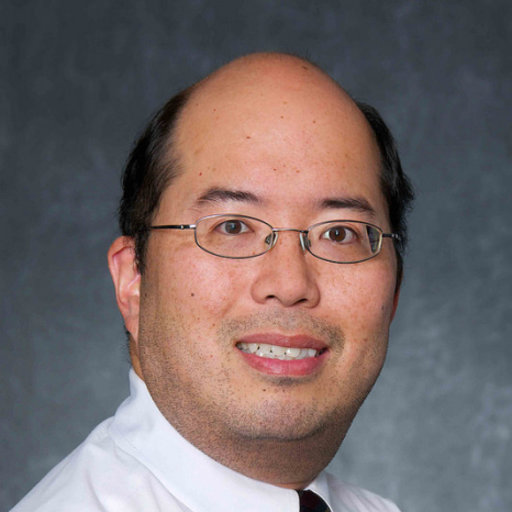Last Updated on January 16, 2025 by Laura Turner
Higher education has seen a demographic shift, with more high school students or graduates taking community college coursework before entering undergraduate study. More opportunities highlight jobs that do not require bachelor’s degrees to engage more high school and community college graduates for jobs. However, the “ideal premed model” stubbornly remains in the minds of applicants and higher education faculty with prestigious university-based training. Nevertheless, prehealth students should consider community college and vocational certifications to support their pursuit of a healthcare career.
Many aspiring prehealth students avoid enrolling at a four-year institution for financial or personal reasons. Community colleges have become increasingly attractive for students who must be frugal or more flexible with their time; others want to take advantage of college-level opportunities not offered at their local schools and get a head start. Students from socioeconomically disadvantaged backgrounds also take advantage of transfer enrollment processes to get a bachelor’s degree and more rigorous science coursework for a competitive application to a health professional program or a research career.
While certifications may not significantly enhance an application’s appeal, they help admissions committees identify candidates with desirable patient-facing or health-system experiences. These certifications also mark a significant pivot for applicants toward becoming more engaged with patients instead of simply shadowing and observing. Thus, they can serve as milestones toward a doctoral-level health professional career.
In this article, I list options that students can consider at the onset of their journey to help them gain community-facing clinical and non-clinical experiences for a compelling application profile while earning a modest income. (Note: this is not a comprehensive list.) Community college and university nursing or health professions departments usually offer these opportunities, and some larger hospital systems may have in-house training programs.
We do not necessarily endorse any program with an embedded link, and we received no compensation to include any programs.
Looking for Medical and Clinical Work Experience?
Find paid clinical work with SDN’s award-winning Activity Finder.
Health Education Advocates
Many prehealth applicants list experiences advocating for better health behaviors, but few seek specific training as Health Education Specialists. Appealing to public health students, health educator certification tracks are available (NCHEC), and many benefit from scholarships and internships (Awards, Fellowships, Internships & Scholarships – Society for Public Health Education – SOPHE).
Patient Advocates and Navigators
Some will enjoy the opportunity to help individual patients and caregivers navigate the complexities of the healthcare system over a longer time. You can get certified as a Patient Advocate or Navigator (Patient Advocate Certification Board, Patient Navigator Certifications). The American Cancer Society has specialized training to help cancer patients (Patient Navigator Training & Credentialing | American Cancer Society).
Community Health Workers
Credentialed community health workers share responsibilities with patient advocates but with a public health and social services perspective (Community Health Workers, Community Health Workers: Occupational Outlook Handbook). These workers have a broader understanding of the social drivers of health and leverage available community resources to improve a patient’s environment.
Patient Transporters
Patient transporters who can safely move patients from beds to wheelchairs or stretchers can also be certified. Many certification programs exist, including one from the National Association of Healthcare Transport Management.
Caretakers
Aspiring health professionals should pursue BLS, AED, and CPR certifications to help people in distress. The American Red Cross hosts several such certifications (which most health professions students take). Several applicants may already have Red Cross certifications for lifeguard training and babysitting.
Emergency Medical Technicians
Community colleges offer training for Emergency Medical Technicians and Paramedics. BLS, AED, and CPR certifications are usually required to complete this training. Many continue to serve as professionally trained paramedics for their communities (National Association of Emergency Medical Technicians).
Student-run Emergency Medical Services (EMS) respond to emergencies with campus and local security. Collegiate EMS Week is celebrated in the second week of November, along with National Collegiate CPR Day (National Collegiate Emergency Medical Services Foundation). Many students perform research and present at national conferences (The Journal of Collegiate Emergency Medical Services, 2025 Conference).
Learn more about becoming an EMT:
Phlebotomists
Phlebotomists are essential specialists in high demand in emergency room settings and outpatient infusion centers. They are critical in blood transfusions and in delivering medications or fluids intravenously. When some patients have deeper veins, phlebotomists may also be trained using ultrasound guidance.
Surgical/Operating Room Technicians
Sometimes called “scrub techs,” surgical assistants and technologists are directly supervised by surgeons and registered nurses during procedures and set up sterile tables, equipment, and supplies. Community colleges also offer surgical technician training. Most curricula require experience in hospitals, outpatient surgery clinics, or oral surgery facilities to gain essential surgical skills and prepare for the certification exam (CST Certification | NBSTSA).
Radiology Technicians
Radiologic/MRI technologists perform medical exams using radiologic equipment, which may include X-rays, magnetic resonance imaging, computed tomography (CT), sonography, and mammography. Radiologists require certification, and dental assistants also highly desire X-ray certification.
Veterinary Assistants and Technicians
Similarly, veterinary technicians and assistants are trained to assist veterinarians, including during surgical procedures. The AVMA publicly lists accredited vet tech programs, and specialization is available (Veterinary Technician Specialties – NAVTA).
Caregivers
Roughly 30 percent of American adults have served as caregivers to their family members (Who Are Family Caregivers?, American Psychological Association, accessed November 15, 2024). Kinship caregivers are family members who take on an unpaid role to care for other relatives. Applicants who have had to take on this role should be comfortable discussing any support they have accessed locally (Kinship Care | Child Welfare Information Gateway).
Many applicants include experience as caregivers to family members, but most have yet to seek a certification that positions them to be formally hired to care for others. Although AAMC has identified caregiving as a “clinical experience,” many admissions committee members consider caring for others as “non-clinical/other” as it is an “expected” role for family members. Others may consider it a “nursing-adjacent” clinical experience.
What may impress faculty would be taking on a caregiving role for unrelated, underserved community members in a paid role. The American Caregiver Association offers a self-paced online course for national certification. For insurance purposes, seeking certification to care for a loved one may be required, so this is a convenient, low-cost option. Advanced certificates are available for assisted living caregivers. A certification is also available for Alzheimer’s patient caregivers.
Local in-person training may also be available. The Veterans Administration provides training, support, and resources through its Caregivers FIRST program.
Many caregivers help older individuals and those with disabilities with daily activities. While many work in nursing homes, some are companions at their patients’ homes. Additional training allows one to become a Home Health Aide, Nursing Home Health Aide, Personal Care Aide, or a Certified Nursing Aide/Assistant (CNA). The Bureau of Labor Statistics provides more insight into Home Health and Personal Care Aides.
Medical Assistants
One can also gain certification as a medical assistant (MA) by passing a qualifying exam (CMA (AAMA) Exam or Clinical Medical Assistant Certification | CCMA) after taking short-term educational tracks offered in community colleges or online. Among many clinical responsibilities, CMA’s can take patient histories, perform vitals, prepare samples for lab results, and provide visit summaries. Over the past few years, an increasing number of successful medical school applicants have had at least one year’s experience as an MA before applying.
Registered Dental Assistants
Most predental applicants express frustration with seeking shadowing opportunities. However, most dental offices welcome competent assistants to help run their practices. Some states require this certification to get hands-on dental experience. More is available at Search Dental Assistant Schools | DANB.
Optometric Assistants
For those interested in optometry or ophthalmology, four unique training programs can open doors into experience with vision care. More info at American Optometric Association (AOA) | Doctors of Optometry.
Physical Therapy Assistants
For those who are sports-minded and interested in physical therapy, sports medicine, podiatric medicine, or orthopedics, a background as a physical therapy assistant can be a wonderful way to engage with patients. (Resource: Accredited PT & PTA Programs Directory)
Behavior and Mental Health Counselors
Although more prehealth applicants have added Crisis Hotline experience, mental health counselors are in great demand. Working as psychiatric aides, one can gain certification through community college or online courses: Certified Behavioral Health Technician | CBHT Certification and Mental Health Technician Certification (CMHT).
Care and Health Service Managers
With extensive clinical experience, many pursue opportunities as medical or health services managers. Managers are in very high demand as they oversee the clinic operations so that effective care is given efficiently. Qualified managers oversee nursing homes, private practices, and health information systems. Certification can be pursued with the National Academy of Certified Care Managers, and it can be a building block for a career as a health administrator (Master’s in Health Administration, represented by the AUPHA, American Association of Healthcare Administration Management, and Health Care Administrators Association).
Medical Scribes and Transcriptionists
Medical Transcriptionists and Scribes are popular for prehealth advisees who take notes while shadowing physicians. Many companies and organizations offer a menu of certifications (Medical Scribe Certification Exam (MSCE™), Certified Professional Medical Scribe), and some offer promotions to help train and manage new scribes. (This SDN article discusses one applicant’s experience with scribing: A Scribe Case Study: Alyssa Kettler.)
Medical Interpreters
Interpreters and Translators are valued in most professional settings, especially healthcare environments, which need interpreters in critical languages to ensure effective care. Because there are many options for attaining certification (for example, NCIHC Certification, CCHI Certification, and the National Board of Certification for Medical Interpreters), check the requirements for a desired translator position and preferred certification.
Takeaway: Get a Head Start with your Clinical Exposure
Many prehealth applicants admire the opportunity to teach patients and communities about their health, but the doctoral professions leave the responsibility of connecting with patients to the careers mentioned above. Empathy, communication skills, cultural competency, and ethics/integrity are as important to these careers as they are to physicians, dentists, pharmacists, veterinarians, and other healthcare providers, so they are important but insufficient to demonstrate one’s readiness for a professional career.
One way applicants can leverage these opportunities is to work for at least a year as an independent contractor or a sole proprietorship/limited liability company (LLC). Undocumented students may consider taking this step as filing for an Employer Identification Number (EIN) does not usually require a social security number, and many have been successful in building confidence in their clinical exposure before taking the next step as a future health professional. (For more information, check out UndocuLaunchPad from Prehealth Dreamers.)
Do these certifications help applicants stand out? Prehealth applicants who spend additional time getting certified show a rarely documented commitment to patient care and systems competency. They may identify those from non-traditional or less privileged backgrounds who clarify their role and purpose as future physicians and professionals. Finally, understanding the value of these roles should give prehealth students a greater appreciation of the interprofessional teamwork needed to help them care for patients effectively. Throughout the United States, workforce shortages continue to threaten our nation’s overall health, and these providers are important to ensuring that patients get the highest quality access to care.
College graduates may find it difficult to find clinical employment without these certifications, and most who apply for these jobs are high school or community college graduates. College students who intend to graduate early should leverage their career services offices to prepare a solid resume and interviewing skills when job searching. CapYear has a free jobs database that lists some medical assistant positions for pre-PA or pre-med students without certifications.
To explore these or consider more options, Explore Health Careers describes the dozens of health careers available. Consider how each opportunity gives you a chance to deepen your resolve to impact the health of your community.
Dr. Chuck acknowledges feedback from Mandy Nau, previously the Executive Director of Health Professions Week for Explore Health Careers.


